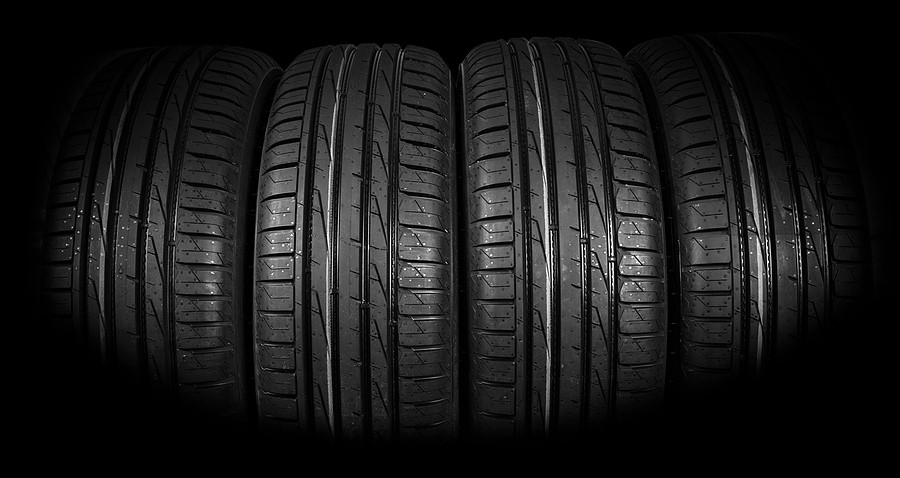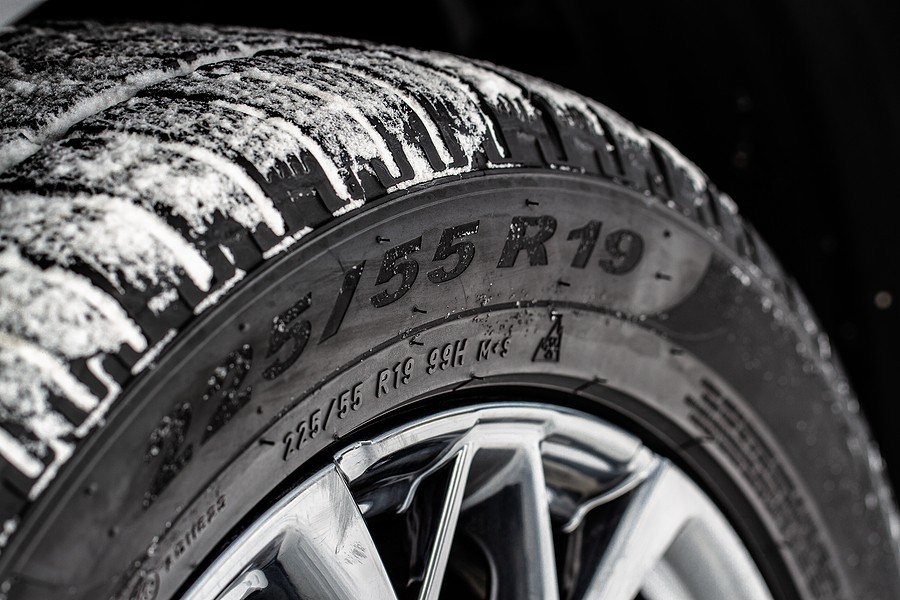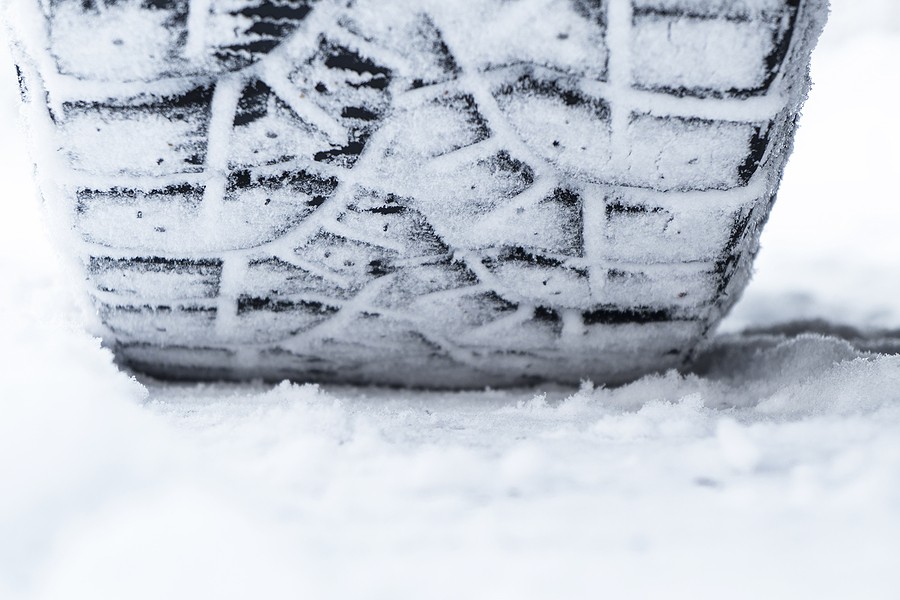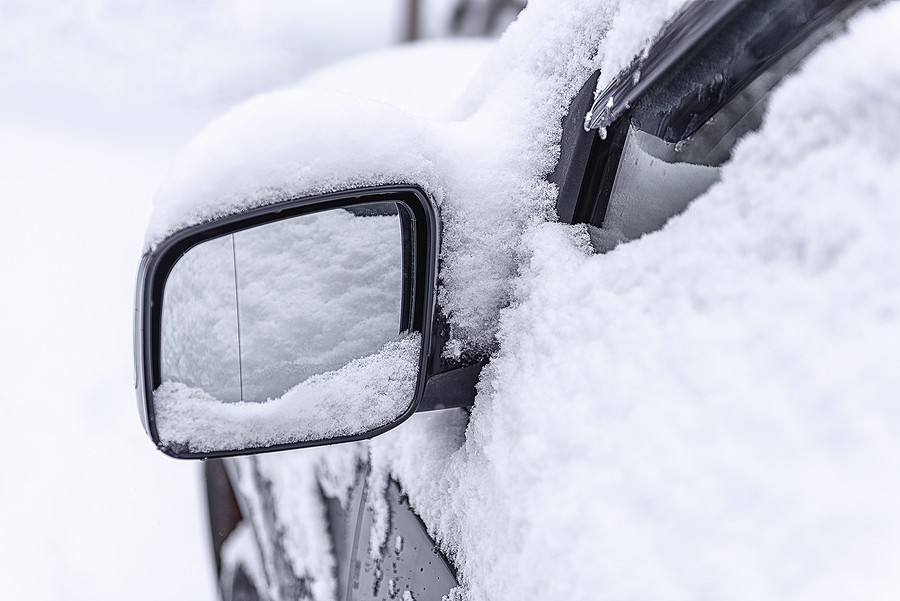Everyone knows that winter is coming and it's important to be prepared. A lot of people will go out and get their car winterized in order to avoid spending money on something they're going to need no matter what the weather is like. Winter tires are also a good idea for that reason, but there's more than one way you can prepare your vehicle for that time of year. All-season tires may not be as necessary because you'll only really need them if we have a freak snowstorm or something similarly bad. But before you make your decision, here are some things worth considering to answer the question “is it better to get all-season tires or winter tires?”

What are all-season tires and winter tires?
All-season tires and winter tires are made from different kinds of rubber (or other materials) that will do better in different weather conditions. All-season tires are meant for all year round, but they're especially good at dealing with the hot summer months and not bad in colder temperatures either. Winter tires can deal better with cold and slippery surfaces.
The benefits of all-season tires
All-season tires are the best option for most drivers because they have an all-weather capability. Depending on the tread pattern, they have better traction on dry roads and may even be good on wet roads. People don't need to put them on just for one season of weather if they're not necessary – they can get more life out of their all seasons over winter tires.
The benefits of winter tires
Winter tires are usually designed specifically for snowy/icy climates which makes them great at dealing with those conditions. If you usually drive in a place that gets a lot of snow or ice then it's probably better to go with winter tires — people who live in warmer climates may not need these kinds of tires and would benefit from something that's more versatile.
The disadvantages of all-season tires
All-season tires do not perform as well in the cold and wintery conditions compared to winter tires which makes them a less good choice for colder areas or climates. They also need to be replaced more often than winter tires so you might have to spend some money on replacements every two years or so. This may depend on how often they're used, though. The tread will wear out faster after it has been used in snowy, chilly conditions – such as taking children skiing – which means you'll need new ones twice per year (more often if you frequently drive in those conditions).

The disadvantages of winter tires
Winter tires are usually harder rubber which can make them noisy during use and they're more expensive. They can also be dangerous during warmer months because they're not very good on dry roads or at high speeds, which is why some people will end up getting stuck with summer tires that aren't ideal for winter weather.
Choosing between all-season tires and winter tires
Winter tires are definitely the right choice if you only need them for winter conditions. This is especially true if you live somewhere where winters are usually pretty bad – low temperatures, snowfall, icy roads, etc.
If you don't have any problems driving in these kinds of conditions then it's probably better to get all-season tires instead. You'll be able to save money without having to think about switching over just because of the seasons. These kinds of tires are better for people who live in places where the weather is more balanced.
Choosing between all-season tires or winter tires will depend entirely on how often you use your vehicle during the year and what the climate is like where you are. If it's always snowing, then winter tires will be best. If not, save your money and go with something that can withstand all conditions.
That way you'll have new tires whenever they're needed instead of new ones every two years. You might also want to consider getting studded snow tires if there's a chance you'll need to drive through some snow/ice-covered streets this winter!
When is the best time to switch from all-season tires to winter tires?
If you're not sure about what kind of tires would be best for where you live, it's a good idea to switch over to winter tires whenever the first snowfall comes. You'll at least have something that can deal with slippery conditions before switching back over once summer arrives.
The problems with having all-season tires are that they wear out very quickly in cold weather and aren't great on icy roads either. That means you'll want to switch over as soon as there's enough snow or ice visible on your roadways to warrant them – this will ensure that your vehicle is equipped with the right kind of tire for where you are at any given time!

How much does it cost to switch from all-season tires to winter tires?
Switching from all-season tires to winter ones can be expensive. You'll need new tires and, depending on where you live, the cost of living there may not justify paying for these kinds of replacements when they're only used during a fairly short period of time every year.
Depending on where you live and how often you'll need your vehicle during the winter months, a switch from all-season tires to winter tires will cost between $100 and $300. If getting new tires is too expensive then it might be better to wait until conditions warrant this kind of replacement instead – even though it means dealing with whatever weather happens in the meantime! Is it worth paying hundreds of dollars when I only use my car 8 months out of the year?
It depends on how much having good winter tires will help your driving experience. If you don't come across snowy roads very often then there really isn't any reason to spend the money. If you do, then it's well worth the cost. All-season tires will work in most cases but they'll wear down very quickly and may not provide as much grip on slippery surfaces as winter ones would. It's also important to note that all-seasons aren't typically meant for this kind of weather so they won't be as good at clearing snow away from your vehicle!
Is it better to get four winter tires or two all-season tires?
Getting four winter tires is a bit pricey, but if you want the best traction possible then this is what you should go with! Not only is there more surface area touching the ground (and thus, rubber gripping onto whatever surface below) but you'll also have the benefit of each tire's individual weight and power. If you can afford it, we definitely recommend going this route!
Getting two all-season tires is a good alternative to four winter ones if the cost is too high for you. Even though there will be less surface area touching the ground (and thus, rubber gripping on the road beneath) it's still better than using standard tires – especially when they're not meant for snow/ice-covered roads! The main downsides are that your grip won't be as good and you probably won't get very far in snowy weather before slipping and sliding around instead of moving forward.
Is it better to use winter tires or snow chains?
Winter tires are most effective when used in deep snow or thick ice, so most of the time these will be your best option. They also last longer and provide better braking power since there's more rubber gripping onto cold surfaces. There aren't any downsides except for the fact that they cost a good deal more than chains.
Snow chains are perhaps a bit outdated now that we have modern technologies like winter tires but they're still very usable! They're easier to put on and will work in a wide variety of conditions – even dry ones. The downside is that they can damage your vehicle's wheel if not installed properly, so you need to watch out for this.

Tips for installing chains
Be careful when installing them to avoid damaging your tires! If you really want to use them then it might be best to either leave the car in a safe, warm place and wait until the roads are completely frozen over (this is generally at night) or – if you can't do that, then just go for it without looking too closely at how they're attached. Instead, lookout for signs of excess wears on the tire treads along with chipping or cracking paint from where they were installed around the wheels.
Driving with chains isn't as bad as some people may think! They will be very noisy so it's best if you have earplugged handy but once they're fitted properly there is not much shaking/shuddering. If you live in the mountains then you probably won't be able to get away without using them so it's best if you just get used to how they work, how loud they are, and where the levers are located behind your driver's seat.
If possible avoid driving really slowly or accelerating/braking quickly since this will cause swaying/shaking which is dangerous for both yourself and surrounding vehicles.
How to choose the right winter tire for my car?
There are a few things you need to pay attention to:
1. Make sure it actually is a winter tire and not an all-season one! If possible, check the sidewall for any information regarding its terrain compatibility.
2. The tread pattern needs to be able to clear away snow/ice and grip onto cold surfaces – some tires are better than others in this area (we recommend looking at how many sipes they have on the grooves).
3. Tread depth is also important; you don't want to end up with tires that will wear out or stop gripping onto the road within one winter season!
4. The speed rating of your tire must be at least as high as your car's maximum speed – this means that only tires with a W speed rating can be used on cars going up to 112 mph. The T and H ratings are for lower speeds so it doesn't matter too much what you get since they'll still work fine even if you drive way faster than their limits.
Tips for driving in the snow with either type of tire
Whether you decided to go with all-season or winter tires, driving in winter can be very challenging and requires a lot of caution. Therefore, it's a good idea for you as a driver to familiarize yourself with some of the common tips to help you drive during snow:
- Slow down and don't make sudden maneuvers. Snow and ice can often catch you off guard, so you'll need to be very careful when driving. If possible, try not to leave yourself in a situation where your car is forced to make hard turns – instead use gentle ones whenever possible.
- Clear out as much snow from your vehicle as possible. If there are huge drifts of it gathering near the front or back of your car then they will force these areas downwards until you lose traction! You can do this by using a shovel or just packing everything down with some old newspapers before heading outside. It's best if you have someone who can follow behind you while clearing out the snow though, otherwise, this might be super dangerous.
- If you have winter tires, remember that they have a different level of traction than all-season ones. It's not always best to turn your steering wheel as soon as you begin turning because this will cause your car to swerve out of control! Instead, take your time and be gentle with the steering wheel so that you can move in a straight line instead.
- Again, slowing down is the most important thing you need to do when driving in snow or ice. The slicker surfaces mean that even normal speeds are too fast for safety, so make sure you're peeling off at least 20 km/h (or 12 mph) whenever possible.
- Winter tires are great for icy roads but impossible for dry ones – where all-seasons excel. If you have a choice then it's best to switch the two depending on what surface is beneath your wheels. If you can't do that, then just go with winter ones for the whole season – even if they're not as good as all-season ones!
Here are some tips for driving around on icy roads:
Snowy and icy roads can be totally two different stories when it comes to driving. Icy roads are probably more dangerous and require more careful driving than any other conditions. Therefore, in addition to the previously mentioned recommendations, consider these tips when driving on icy roads:
- Don't try turning at all! Just turn off onto side streets that aren't as slippery, wait until things clear up, or find an open parking lot that's not covered in ice – although make sure there aren't any other cars parked there first because otherwise, it might be dangerous.
- If you do need to turn then make sure you wait until the wheels are completely straight – not while they're turning or swerving or else it will cause a very dangerous situation. If you have winter tires then this won't be too much of a problem but with normal all-seasons, it's best to avoid turning at all in case anything goes wrong.
- It might sound really obvious but when driving on snow and ice try not to speed, especially when taking a corner! You'll probably find that your car doesn't handle in the same way as usual so take things slow and only accelerate when necessary.
- Don't brake suddenly either since this can cause skidding/snowplowing which is super dangerous for everyone involved.
- You'll probably find that when you're driving uphill, your car will slide backward (especially with the handbrake) and this might be a bit inconvenient but there's not much that can be done about it! You may need to get out of the car and put some weight on the back tires in order to get them moving again especially if it's really important for you to reach your destination quickly (like picking up your kids from school).
- There are lots of videos on YouTube showing people putting cars into neutral and pushing them instead – don't do this because you could cause damage! That doesn't mean doing nothing is an option either though…
- Some old-timers insist on using their parking whenever they go outside during winter but it's often a very bad idea because you could hit something and get hit by someone else.
- If the weather is really bad then find a parking lot that isn't covered in snow or ice and circle around until a spot opens up. If need be, just don't park at all until the weather clears up.
- There are lots of great apps available to help you locate open parking spots around your area – just look for “free/open parking” on Google Play or AppStore. You can also use one of those apps with a satellite view to look for places with less snow/ice which will make things easier if you're going somewhere nice recently cleared off.
- Talking about ice… If possible sidewalks since they're usually harder to shovel because of all the snow/ice buildup.
- If possible drive only on main roads, just be extra careful when turning to avoid sliding into oncoming cars.
- When you're down at street level it's pretty tough driving around in ice and snow with normal tires but if you know where all the patches are then it'll be a lot easier for you! Just remember that nobody else will be able to see them so try not to get stuck or run into anyone since that'll definitely end badly for both of you (and anyone else who happens to witness your accident).
- The best thing about having winter tires is how they work in extreme cold – they can even stop working when there's an inch or more of ice on the road and this is the main reason lots of experienced winter drivers suggest getting them.
- If you can handle driving on snow and ice then it's up to you whether you want winter tires or not but since people usually don't have experience driving in those conditions, they're a lot more dangerous around those times.
- Most people think that all-season tires are good enough for any kind of weather but this isn't actually true – an old study showed that they're great for summer and autumn (during dry/hot conditions) but pretty much useless during spring and especially winter.
All-seasons vs winter tires: FAQs
Here are some common frequently asked questions about the debate between all-season vs winter tires.
Can I use winter tires in summer?
Yes! Winter tires will be more than welcome since they're great for slippery conditions – no matter the temperature. This is especially true if you live somewhere that has heavy snowfall but you know it won't be cold enough to use your winter tires.
When can I switch to all-season tires?
If you want to use all-seasons year-round, then remember that this is very possible as long as there aren't too many inches of snow on the roads each day. It's best to switch over once the ground becomes hard and dry because deep patches of ice are likely to develop beneath these non-winter rubber shoes after a few days of softening up again.
Can I mix winter and summer/all season?
No – you should not mix tires such as winter and summer/all-season tires because this will decrease their effectiveness.
The idea of having multiple sets of wheels is a very nice one if you can afford it but just remember that it's only worth the money if you're wasting business on renting or borrowing winter wheels and/or chains! If you already have your own then this won't be necessary at all, so really think whether or not adding these extra costs is something you want to do.

Can I sell my used winter tires?
You can sell your used winter tires if they're in good condition – just contact a few companies who deal with these things and see what price you get for them.
What are the 10 Best All-Season Tires?
If you're planning to purchase all-season tires, you might want to consider this list of the 10 best all-season tires as of 2022:
- Dunlop SP Winter Sport 4D
- Bridgestone Blizzak WS80
- Michelin X-Ice Xi2
- Continental ExtremeContact Winter
- Nokian Hakkapeliitta R2 SUV
- Vredestein Ultrac Sessanta
- Pirelli Winter Sottozero Serie 3
- Uniroyal MS Plus 77
- Michelin X-Ice Xi3
- Bridgestone Blizzak WS80
How long do all-season tires last?
This depends on a lot of factors such as the weather and how much you drive. Since all-season tires are designed for all types of road conditions, it's best to switch them over once they start showing signs of damage – which is usually around 8 years.
How long do winter tires last?
Winter tires should only be used during winter (obviously) and you should expect them to last around 6 years, give or take.
What are the Best Winter Tires in 2022?
Unless you have a customized list, it will be hard to answer this question because there are many different factors that determine the best winter tires. These include traction, comfort and noise levels but also durability (which is very important if you plan to use them for more than one season).
What do Michelin X-Ice Xi3 tires cost?
As of 2019, these tires go for $90 per tire.
What are the quietest winter tires?
The quietest winter tires are the ones that have excellent noise reduction features. If you drive in busy areas, it's important to pick a tire that won't bother anyone with its sound – this will protect both your ears and theirs!
What do Michelin X-Ice Xi2 tires cost?
These tires are rather expensive and as of 2019 they sell for $145 per tire.
Are all-season tires noisy?
All-season tires are not noisy in general but if they're not designed for wet conditions, you might want to switch them over when it starts raining. Since Michelin X-ice Xi2 tires were made for all weather conditions, they won't make a lot of noise in dry or wet conditions.
Do more expensive tires last longer?
This is definitely one of the questions we hear the most and the answer is – not necessarily. It's true that tires such as Bridgestone Blizzak WS80 cost a lot more than your run-of-the-mill all-season or winter tires but they're usually higher quality so you will probably be able to use them for longer. That being said, there are exceptions to this rule so do your research before making a purchase.
What other features should I look for in winter tires?
Some other features you should look for include self-cleaning treads (so the snow doesn't stick), an excellent grip on both wet and dry roads as well as superior stopping power in wet or icy weather conditions.
Are all snow tires the same?
No, they're definitely not – and this is especially true if you consider winter vs all-season. A good example of this would be the difference in treads: while some all-seasons have a mighty aggressive design to avoid hydroplaning in heavy rain and snow, winter tires usually have deeper treads since they need to be able to dig through the snow and resist icy conditions.
Where can I buy Michelin X-Ice Xi2 tires?
You should be able to find these tires at your local tire store or you could also try online shops such as Amazon. Keep in mind that these are quite expensive tires so you might not want to buy them straight from the tire store where they probably cost even more than on Amazon.
Do winter tires increase my car's value?
While this is one of the questions we get asked the most, there's no clear answer. On one hand, winter tires can definitely boost your car's value thanks to their aggressive design and superior grip but on the other, they will wear out rather quickly which means that your resale value might take a hit as well.
How to store winter tires?
Winter tires should not be stored in a warm place since they can get soft and lose their shape. The best thing to do would probably be to keep them in the trunk until winter comes around, at which point you can remove your all-seasons and replace them with winter ones.
Is it worth buying used winter tires?
If you're on a tight budget, buying used winter tires is definitely an option. However, keep in mind that they might not last as long as new ones and their performance will be less than stellar – especially if you plan to drive your car on snowy roads at high speeds.

What are the most important winter tire maintenance tips?
The most important tip is to make sure you check your tire pressure at least once a week, this way you will be able to tell if something is wrong. Generally speaking, tire pressure decreases in the cold which means that all-season or summer tires will end up losing their grip on the road – leading to an increased chance of accidents.
What about different tread patterns?
If you're interested in buying winter tires, you might have come across the term “studless” before. The main difference between these two designs is that studless tires have a more aggressive design and deeper treads whereas studded tires have metal screws installed onto their tread to increase traction on ice. It's also worth mentioning that studded snow tires can be dangerous if you drive them on roads without snow – so be careful!
Conclusion
When it comes to winter tires vs all-season tires, the general consensus seems to be that winter tires are a better option for most people. They offer better performance in extreme cold weather and are less likely to slip on ice or snow. If you're comfortable driving in these conditions, then winter tires are definitely the way to go. However, if you're not used to driving in slippery conditions, all-season tires may be a safer option for you. In any case, make sure you know what kind of weather is expected before heading out on the roads!




